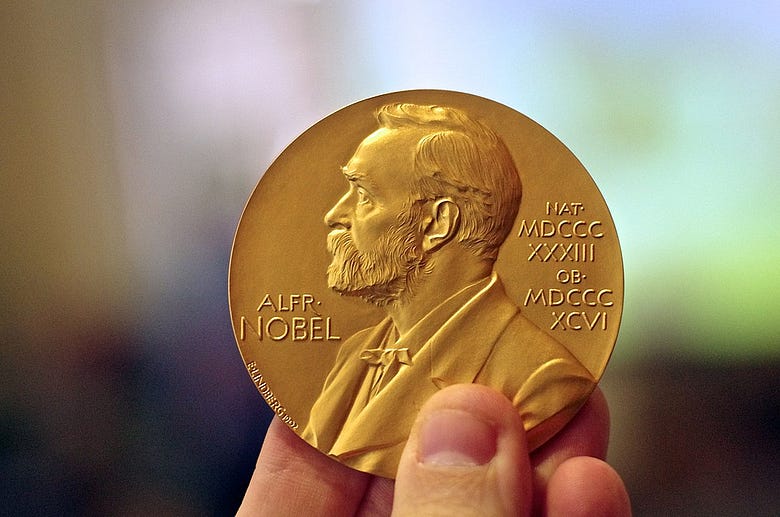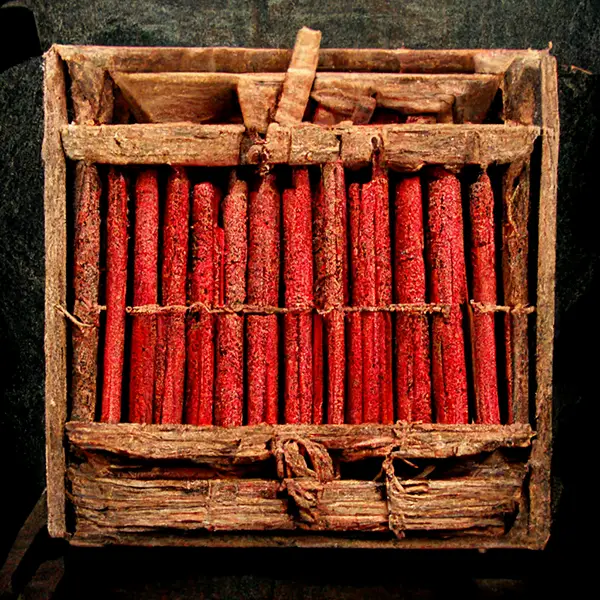Alf was born in Stockholm, Sweden in the black-and-white years of 1833 to an intelligent but relatively poor family. His father, a generalist, had various occupations of an engineer, inventor, and architect.
Some of his genes passed onto his 8 children, as the 4 who survived childhood in the harsh environment all went on to dominate their chosen careers.
But even among future industrial giants, Alf was a bit different. He went on to pretty much invent the 1800s version of the word polymath, by living it.
For those unfamiliar with the word, a polymath was perhaps named after a mathematician named Polly. Or a parrot. Or neither. I’m not sure, I’m a millennial, and the internet was my Latin teacher.
Anyway, the list of Alf’s accomplishments is almost too much to believe.
Here’s just a few for starters:
- He was an engineer, chemist, businessman, inventor, and philanthropist
- Fluent in Swedish, Russian, French, German, Italian, and English
- Granted his first patent at only 24, attaining 355 over his lifetime
- His startup had over 90 factories by the time of his death
But let’s not get too ahead of ourselves. Alf’s story begins with his father’s rise out of poverty.
The Death of a Son
Alf’s father was a tinkerer and likely unsatiable in his pursuit of bettering his family’s position in life. I can only imagine the pain of losing 4 young children must’ve had something to do with his later motivations in life, because, in 1838, he moved his family from Sweden all the way to St. Petersburg, Russia, to sell his nifty unheard-of inventions.
And one of them was a hit — the original rotary lathe used for plywood manufacturing.
While that may not sound like much of a tool, it was so popular during this period of industrial expansion that Alf’s father went on to set up so many factories that he, himself, became an industrialist.
After the success of his main invention, he pursued another passion with his newfound wealth — underwater exploding mines.
Now that may not be such a popular hobby these days, but at the time, it was a blast. His improved version of the deadly weapon and the wealth from his lathe business led him to open up an armaments factory in Russia.
But weapons of war were only popular so long as wars were being fought. Until the modern military-industrial complex, anyway. So after the Crimean War ended, his family was slowly forced to sell off their Russian investments and move back to Sweden.
It was here — in an even newer factory — where tragedy struck.
Alf’s younger brother, one of several chemists in the family, was killed in an explosion alongside several factory workers after experimenting with nitroglycerine.
Choosing Your Future
Alf wouldn’t stand for this atrocity. He immediately became a pacifist and demanded his father stop producing weapons of war.
Oh wait, that was in another timeline.
In this one, Alf set about getting vengeance by wanting to prevent other people from dying from explosives. By making better ones.
So, he spent 3 years inventing what came to be known as dynamite, and the rise of Alf began, too.
To say the invention of dynamite was popular would be an understatement. Every general, pioneer, miner, and construction firm in the entire world wanted piles of the sticks as soon as they could get them.
It led Alf to a life of worldliness and wealth.
He spent years going back and forth between residences in Russia, France, America, and Italy. He had no choice really, his main business was as common to humankind as love itself — war sells.
The great irony of it all was that Alf was truly considered to be a pacifist in nature. He must’ve had some late nights lying awake in bed, wiping his tears with kronor and guilt.
Knowing his invention saved lives in construction while being used as a tool of war to inflict countless mortality on others is a mental juxtaposition we should be glad to never encounter.
The Merchant of Death
Fast forward to 1888. After a long life running businesses, chasing forlorn loves around the world, and relaxing in the Italian Riviera, misfortune struck another brother.
Ludvig Nobel, amazingly one of the richest people in the world at the time, died from a heart attack at the youngish age of 56.
Alf was of course distraught by the passing.
Nothing reminds us more of our own mortality than when a close friend or relative dies. Or 2. But even then, this case may be an exception.
Because Alf had even more reason to worry when he saw it was, in fact, he, who had died.
A prominent French newspaper showcased the title:
“Le marchand de la mort est mort.”
For non-French speakers, that probably means gibberish. For French and English speakers, it means “The merchant of death is dead.”
The merchant of death.
He was known to have considered himself a pacifist, for peace’s sake! Alf knew he had to change that.
The wealthy elderly famous inventor likely couldn’t have stopped thinking about his legacy, now that the true feelings of the general public came out. He was a warmonger, the opposite of his self-image.
A Love Never Meant to Be
He had no children and never-ending up marrying any of the three loves of his life. But one of the pursued was a prominent pacifist by the simple name of Baroness Bertha Sophie Felicitas Freifrau von Suttner. Say that three times fast, I dare you.
In 1876, she was briefly Alf’s personal secretary and housekeeper, needing an escape from marrying a man 7 years her junior because of some disapproving parents. God, weren’t 19th-century parents just. the. WORST?
Many historians posit Alf was hoping she would take care of more than just his house if you get my drift. But not too long after, she moved back home and secretly married her young friend, never seeing Alf again.
However, they stayed in contact via prototype paper email for decades afterward!
She later became a prominent author in her own right, advocating for pacifism and women’s rights. It’s thought her ideas in pacifism had at least some influence on Alf over the years, perhaps far more than we know.
He even came to believe that advances in war technology would actually prevent future wars. Think of the idea of the rogue scientist giving nuclear bomb schematics to all the major superpowers so they stand on an equal footing. That kind of thing.
So now we had a perpetually solitary man, likely infatuated with an exotic foreign baroness with a fondness for wealth, pacifism, and cradle robbing — and he just found out the world thinks he’s the worst thing to happen to humanity since peanut butter tuna sandwiches sans tuna.
Oh, what’s one of the richest war profiteers in the world to do?
Rewrite History!
Well, in the case of Alf, he turned on his tabletop gaslight to the max. He set his mind to crafting a plan where his name would live on in history.
Not as someone who enabled generals to murder millions of people around the world in the name of incestuous kings, czars, and politicians, but as a man who helped the best of humanity, rather than destroying large parts of it.
His foundation would have ample funding, close to 94% of his $200 million US fortune in today’s equivalent.
Alf considered a few fields and topics of research to be above all else in relation to the good of humanity. To fit his desire, he wanted to award the best of the best in each of these fields once a year and put his big shiny name on it.
The categories would be:
- Chemistry (of course)
- Physics
- Medicine
- Literature
- Peace
He selectively consulted a few people in crafting this giant gift to humanity and placed the entirety of the plan into his will.
A few years later on the 10th of December, 1896, Alf passed away from a stroke while relaxing at one of his homes in Italy.
Much to everyone’s shock — especially any family members looking for a nice little Christmas gift full of a million kronor — he bequeathed nearly all of his fortune to this estate foundation.
Who was Alf?
The first Nobel Prize was awarded on the fifth anniversary of Alfred Nobel’s death in 1901.

Ever since then, apart from a few pesky wars, occupations, and Sweden and Norway breaking up as a unified country, between $350 thousand and $1.4 million equivalent in USD has been handed out to winners from around the world to “those who, during the preceding year, have conferred the greatest benefit to Mankind.”
The Nobel Prize has had its fair share of controversies — even a sociopathic pumpkin was once nominated for a peace prize.
But overall, the foundation serves a good purpose, even if the name implies an inherent hatred of oddly spelled bells. The foundation tries to somewhat neutrally reward the best humankind has to offer.
In the modern world dominated by divisiveness, greed, and late-stage capitalism, there’s something to be said about getting generously rewarded for achievement without asking for it.
So, the next time you hear the excitement over the Nobel prizes being awarded every year, just remember their origins lay in one of the grandest face-saving gestures in history.
If for no other reason than to always look beneath the surface of everyday things. You never quite know what you’ll find. You may even have a blast while you’re at it.
No bells though, please.
Epilogue:
In 1905, Alfred’s potentially long-lost love with the incredibly simple name— Baroness Bertha Sophie Felicitas Freifrau von Suttner — became the first woman to be awarded the Nobel Peace Prize for her decades of activism. Neat.
J.J. Pryor
Want more fun stories? Join Pryor Thoughts for free today!
References:
- https://www.nobelprize.org/uploads/2018/08/prize-amounts-2021.pdf
- https://www.britannica.com/biography/Alfred-Nobel
- https://www.britannica.com/biography/Bertha-Freifrau-von-Suttner
- https://en.wikipedia.org/wiki/Nobel_Prize
- https://en.wikipedia.org/wiki/Alfred_Nobel
You might also be interested in reading about the strange history of two vaccines.


